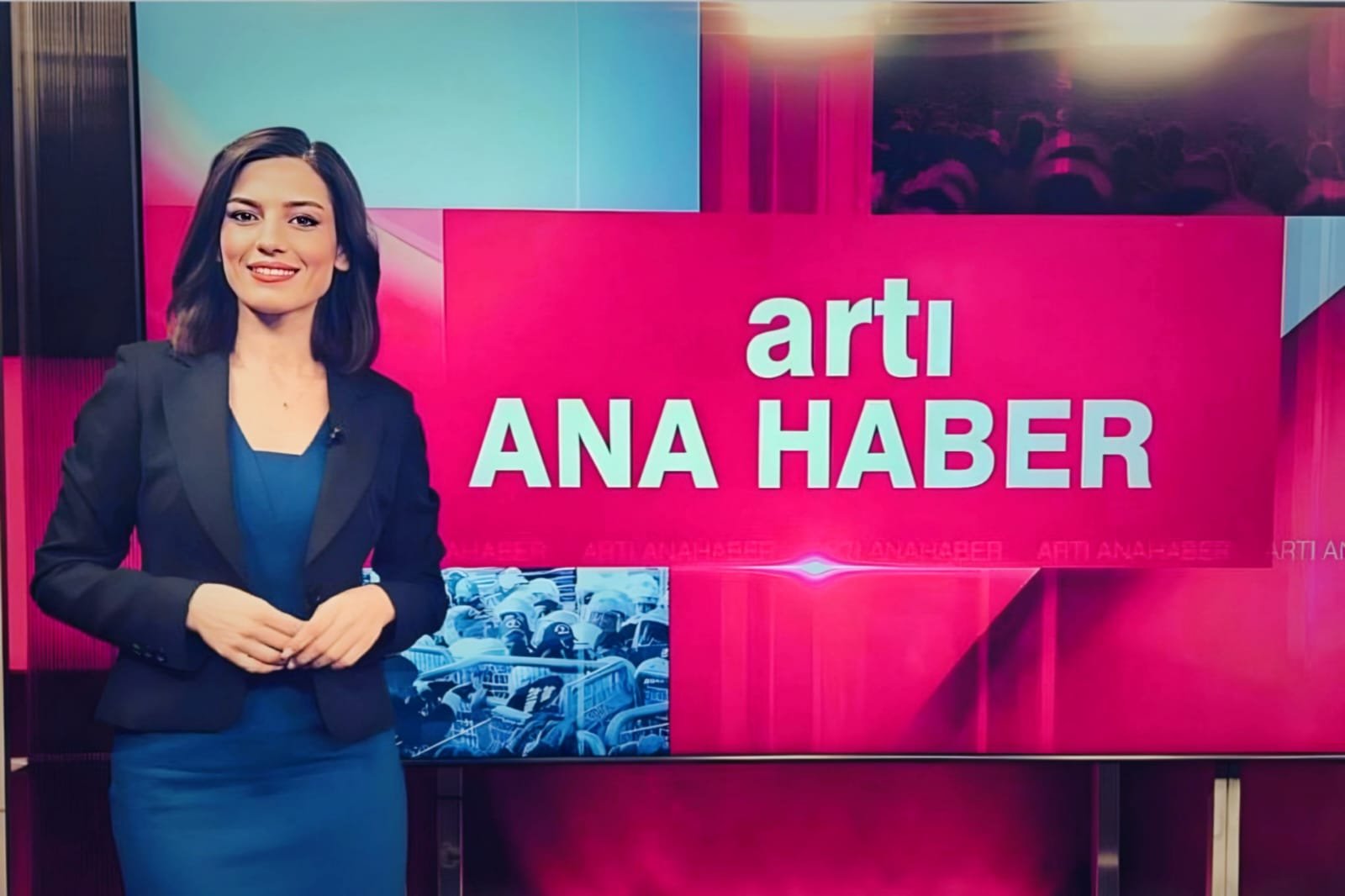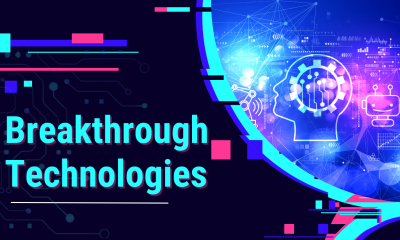Uncategorized
Prosecutor News: The Role, Challenges, and Impact of Prosecutors in the Justice System
Published
4 days agoon
By
Harry
In the criminal justice system, the prosecutor is a central figure who wields significant power and responsibility. As the person tasked with prosecuting criminal cases on behalf of the state or the government, a prosecutor plays a crucial role in ensuring that justice is served. Prosecutors not only represent the public’s interest in enforcing the law, but they also ensure that criminal defendants receive fair trials in accordance with the law.
The world of prosecutorial decision-making, legal proceedings, and ethical considerations is vast, and the actions and decisions of prosecutors can have profound effects on individuals, communities, and society as a whole. In recent years, prosecutor-related news has been a focal point of public attention, particularly in cases involving controversial decisions, prosecutorial misconduct, or significant social justice issues.
This article explores the role of prosecutors in the legal system, recent high-profile prosecutor news, the challenges prosecutors face, the ethical dilemmas they encounter, and their impact on the criminal justice process.

The Role of the Prosecutor
Prosecutors serve as the legal representatives of the government, tasked with enforcing the law and ensuring that justice is done in criminal cases. They are responsible for investigating crimes, deciding whether or not to file charges, presenting evidence in court, and, in some cases, advocating for a sentence in criminal cases. The prosecutor’s job is complex and multifaceted, involving legal knowledge, ethical decision-making, and often a delicate balancing act between advocating for justice and protecting the rights of the accused.
Key responsibilities of a prosecutor include:
- Filing Charges: A prosecutor has the discretion to decide whether to bring criminal charges against an individual. This decision is typically based on evidence, legal principles, and the likelihood of securing a conviction.
- Plea Bargaining: Prosecutors often engage in plea bargaining, where they offer a reduced sentence or charge in exchange for a guilty plea. This is a common practice in criminal law, as it helps resolve cases more efficiently and reduces the burden on courts.
- Presenting the Case in Court: Prosecutors are responsible for presenting evidence and arguments in court to prove the defendant’s guilt beyond a reasonable doubt. They are expected to adhere to the rules of evidence and conduct fair, impartial trials.
- Ensuring Justice: While a prosecutor’s goal is to secure a conviction, they are also ethically bound to pursue justice. This means they must disclose exculpatory evidence (evidence that may prove the defendant’s innocence) and avoid pursuing cases where the evidence is insufficient.
- Sentencing Advocacy: In some cases, the prosecutor will make recommendations regarding sentencing. While their role is not to impose a sentence, they advocate for what they believe to be an appropriate punishment based on the seriousness of the crime and the defendant’s history.
High-Profile Prosecutor News: Cases and Controversies
The decisions made by prosecutors can have profound consequences, which is why prosecutor-related news often garners public attention. Recent cases have highlighted the immense power of prosecutors, as well as the ethical dilemmas and challenges they face.
Case Study 1: The Trial of Derek Chauvin (George Floyd)
In 2021, the trial of former police officer Derek Chauvin, charged with the murder of George Floyd, captured global attention. Prosecutor Steve Schleicher led the prosecution in a case that became a landmark moment in the fight against racial injustice and police brutality. The trial was highly publicized, and prosecutors faced intense pressure to bring justice to the victim, George Floyd, and his family.
The prosecution had to present overwhelming evidence, including the now-iconic video of Floyd’s death, to secure a conviction. In this case, the prosecutor’s role went beyond legal strategy, touching on social justice and the broader issue of systemic racism in law enforcement. The successful conviction of Chauvin was seen as a victory for justice, but it also sparked discussions about how prosecutors should handle cases involving police officers and the complexities of holding law enforcement accountable.
Case Study 2: The Rittenhouse Trial
Another example that captured national attention was the trial of Kyle Rittenhouse, who was charged with killing two people during the protests in Kenosha, Wisconsin, in 2020. Prosecutors in this case faced significant challenges. The case became a flashpoint for debates around self-defense, gun rights, and the militarization of protests.
Prosecutor Thomas Binger came under intense scrutiny for his handling of the case, especially after the jury acquitted Rittenhouse on all charges. Critics of the prosecution argued that the charges were politically motivated, while others contended that the prosecution had failed to adequately present their case. In the aftermath of the trial, the prosecutor’s role was heavily debated, with discussions focusing on the impact of political ideologies on prosecutorial discretion and decision-making.
Case Study 3: The Jeffrey Epstein Case
The investigation and prosecution of financier Jeffrey Epstein, who was accused of running a global sex trafficking ring, also brought attention to the role of prosecutors. Epstein was arrested in 2019 on federal charges of sex trafficking minors, but his case had a long history of being handled by state and federal prosecutors. In 2008, Epstein had pleaded guilty to state charges of soliciting prostitution from a minor in Florida, after a controversial plea deal orchestrated by former U.S. Attorney Alex Acosta. The deal, which was widely criticized, allowed Epstein to serve only 13 months in a county jail while continuing his business operations.
Epstein’s case raised serious questions about prosecutorial discretion, ethics, and the role of power in the justice system. In particular, the 2008 plea deal became a focal point for discussions about how prosecutors handle cases involving powerful individuals. Many felt that the deal was an example of prosecutorial misconduct or favoritism, given Epstein’s connections to high-profile political and business figures.
Prosecutors and the Ethical Dilemmas They Face
The role of the prosecutor involves not just technical legal work, but also navigating complex ethical dilemmas. Prosecutors are ethically bound to pursue justice rather than merely seeking convictions. Their duty is to ensure that the guilty are punished, but also to protect the innocent from wrongful conviction.
Key ethical considerations for prosecutors include:
- Brady Rule: Under the Brady v. Maryland ruling, prosecutors are required to disclose exculpatory evidence (evidence that may prove the defendant’s innocence) to the defense. Failing to do so can result in a wrongful conviction. Prosecutors who withhold evidence for tactical reasons violate the defendant’s constitutional rights.
- Discretion in Charging: Prosecutors hold significant discretion in deciding whether or not to bring charges against a defendant. This can be influenced by various factors, including the strength of the evidence, the severity of the crime, and the potential impact of the case on the community. However, decisions should be made with the goal of achieving justice, not based on personal biases or political considerations.
- Plea Bargaining: Prosecutors are involved in plea bargaining, where the defendant agrees to plead guilty to a lesser charge in exchange for a reduced sentence. While plea bargaining can expedite the judicial process, it can also raise concerns about fairness, especially if defendants feel coerced into pleading guilty to crimes they didn’t commit.
- Avoiding Conflicts of Interest: Prosecutors must avoid conflicts of interest, such as when personal relationships or political considerations influence their actions. Ensuring impartiality is crucial to maintaining public trust in the legal system.
- Public Pressure: Prosecutors often work in the public eye, especially in high-profile cases, and face pressure from the media, the public, or even elected officials. Balancing this pressure with the need for impartial legal judgment can be a difficult ethical challenge.
The Challenges Prosecutors Face
Prosecutors operate under immense pressure, both legally and emotionally. They must ensure fair trials while also balancing competing interests, such as public safety, the rights of the accused, and the desire for convictions. Some of the major challenges faced by prosecutors include:
- Heavy Caseloads: Prosecutors often face overwhelming caseloads, with many handling hundreds of cases at a time. The sheer volume of cases can make it difficult to give each case the attention it deserves, leading to concerns about rushed decisions or overlooked evidence.
- Bias and Discrimination: Prosecutors, like all people, can be influenced by their own biases, whether racial, socioeconomic, or ideological. These biases can impact decision-making, such as whom to charge, what charges to bring, and how to negotiate plea deals. There is growing recognition of the need for prosecutors to be aware of their own biases and take steps to address them.
- Public Scrutiny: Especially in high-profile cases, prosecutors are under constant public scrutiny. While public attention can ensure transparency, it can also place undue pressure on prosecutors to make decisions based on public opinion rather than the merits of the case.
- Resources and Support: Prosecutors may struggle with a lack of resources, both in terms of funding and staff. In many jurisdictions, underfunded prosecutorial offices face challenges in gathering evidence, securing expert testimony, and maintaining the necessary infrastructure to handle complex cases.
Conclusion
Prosecutors play a critical role in ensuring justice is served and maintaining the integrity of the legal system. While they are tasked with holding individuals accountable for crimes, they also bear the responsibility of ensuring that the accused receive a fair trial and that justice is not compromised by bias or prosecutorial misconduct. The recent surge in prosecutor-related news has highlighted the power and influence that prosecutors hold, as well as the ethical and practical challenges they face.
From high-profile cases involving racial justice to complex legal maneuvers in controversial trials, prosecutors are central figures in the criminal justice system. Their decisions can affect not just the lives of those they prosecute, but the public’s faith in the fairness of the legal system. In a time of increasing scrutiny, prosecutors must navigate these challenges with integrity and impartiality, ensuring that their actions are guided by the principles of justice.
FAQs
1. What is the role of a prosecutor in a criminal case?
A prosecutor represents the government in a criminal case, deciding whether to file charges, presenting evidence in court, and advocating for a conviction. They are also responsible for ensuring that the defendant’s rights are upheld and that justice is pursued, not just convictions.
2. Can a prosecutor drop charges once they are filed?
Yes, a prosecutor has the discretion to drop charges if they determine that there is insufficient evidence, or if new evidence comes to light that undermines the case. However, this decision can be challenged in some cases, and prosecutors must be cautious when dismissing charges.
3. What ethical challenges do prosecutors face?
Prosecutors must ensure fairness in their cases, avoid bias, disclose exculpatory evidence, and balance the need for convictions with the rights of the accused. Ethical dilemmas may arise in situations where personal biases, public pressure, or political considerations influence their decisions.
4. How do prosecutors decide whether to offer a plea bargain?
Prosecutors typically offer plea bargains in cases where they believe it is in the best interest of justice, such as when the evidence is strong but the defendant’s cooperation might help with other cases. They also consider the severity of the crime, the defendant’s history, and the potential impact on the community.
5. What happens if a prosecutor engages in misconduct?
If a prosecutor engages in misconduct, such as withholding evidence or making biased decisions, it can lead to wrongful convictions, overturned verdicts, or disciplinary action. Prosecutorial misconduct can undermine public trust in the justice system and has serious consequences for both the prosecutor and the case involved.
You may like
Uncategorized
Lionel Messi and Inter Miami: 2024 Season Analysis
Published
2 days agoon
November 18, 2024By
Harry
Since Lionel Messi’s arrival in the summer of 2023, Inter Miami has undergone a transformation, both on and off the field. Messi’s impact, coupled with high-profile teammates like Sergio Busquets and Jordi Alba, has revitalized the club’s fortunes and elevated Major League Soccer’s (MLS) global profile.
A Record-Breaking Season
Messi’s first full season in 2024 was remarkable. He scored 11 league goals, often in critical moments, and played a vital role in lifting Miami’s performance. His scoring streak early in the season, including seven consecutive matches with goals, demonstrated his enduring quality at age 37. He also helped guide Miami to their first-ever continental tournament appearance in the CONCACAF Champions Cup, though their journey ended in the quarterfinals against Monterrey.
Beyond goals, Messi’s leadership and playmaking reshaped Miami’s style of play, making the team a contender in the MLS Eastern Conference. However, injuries sidelined him for parts of the season, revealing the team’s dependency on their talismanic forward.
Team Success and Challenges
Inter Miami’s performance improved significantly with Messi, achieving competitive standings in the league. Yet, the team faced challenges in the playoffs, bowing out earlier than expected in a loss to Atlanta United. Despite high expectations, this outcome highlighted the need for further squad depth and strategic adjustments to maximize their potential in future campaigns.
Off-Field Impact
Messi’s presence has also brought unparalleled attention to Inter Miami and the MLS. Attendance at games surged, and the club’s visibility skyrocketed, attracting international fans and boosting merchandise sales. His influence extended beyond soccer, bridging sports and entertainment, particularly in a city as dynamic as Miami.
Conclusion
Lionel Messi’s first full season with Inter Miami underscored his enduring excellence and his ability to elevate a team. While the season fell short of ultimate glory, his contributions have set a strong foundation for the club’s future ambitions in MLS and beyond. Inter Miami now stands poised to further capitalize on Messi’s talent as they aim for more consistent success in 2025.
1. How did Lionel Messi perform for Inter Miami in 2024?
Messi scored 11 league goals and was instrumental in Inter Miami’s improved performance, including leading them to their first continental appearance.
2. Did Inter Miami win any titles with Messi in 2024?
The team made significant progress but did not secure any major titles, exiting early in the MLS playoffs and falling in the CONCACAF Champions Cup quarterfinals.
3. What impact has Messi had on Inter Miami off the field?
Messi’s presence has boosted ticket sales, merchandise revenue, and international visibility for both the club and MLS as a whole.
4. What are Inter Miami’s goals for the future with Messi?
The team aims to improve its squad depth and contend for titles, building on the momentum and global attention Messi has brought.
5. Will Messi stay with Inter Miami beyond 2024?
While Messi’s future plans include the 2026 World Cup, his immediate focus remains on achieving success with Inter Miami. His long-term involvement with the club may depend on its competitive progress and his personal goals.
Messi’s tenure with Inter Miami has reinvigorated the team and energized MLS, marking a significant chapter in his illustrious career.
Uncategorized
The Illinois Assault Weapons Ban: Understanding the Legislation and Its Implications
Published
7 days agoon
November 13, 2024By
Harry
In recent years, the United States has witnessed a growing national debate around gun control and the regulation of firearms, particularly assault weapons. While the conversation has been multifaceted and often polarized, individual states have increasingly taken matters into their own hands, passing laws aimed at curbing gun violence. One of the most significant pieces of gun control legislation in Illinois in recent years is the Illinois Assault Weapons Ban, which seeks to limit access to certain firearms deemed to be high-capacity, military-style weapons. This law has sparked intense debate and raised questions about the balance between public safety and Second Amendment rights.
This article will delve into the specifics of the Illinois Assault Weapons Ban, including its history, provisions, legal challenges, and broader implications. We will explore the political, legal, and social context surrounding the law, and examine both the supporters and opponents’ perspectives. Finally, we will look at the potential impact of the ban on the state’s gun culture and the nation’s ongoing debate over gun control.

The Background: Illinois’ History of Gun Control
Illinois has long been at the forefront of the national conversation on gun control. As one of the more populous states, particularly with a large urban center in Chicago, Illinois has faced significant challenges related to gun violence. Chicago, in particular, has seen a high number of gun-related homicides, especially involving firearms like assault weapons. This has prompted lawmakers in the state to push for stricter gun regulations as a means of curbing violence.
The push for an assault weapons ban in Illinois began in earnest in the 1980s, following the national outcry over mass shootings and rising crime rates. However, it was not until 2018 that Illinois passed a comprehensive statewide ban on assault weapons—after significant lobbying from gun control advocates and with the support of Governor J.B. Pritzker.
The Illinois Assault Weapons Ban, which was signed into law in 2023, expands on previous efforts to regulate firearms by focusing specifically on high-capacity, semi-automatic weapons that are often associated with mass shootings. The law defines assault weapons as any semi-automatic rifle, shotgun, or pistol that can accept a detachable magazine and features at least one military-style characteristic, such as a pistol grip or folding stock.
Key Provisions of the Illinois Assault Weapons Ban
The Illinois Assault Weapons Ban is one of the most stringent pieces of firearm legislation in the country, and it includes several key provisions designed to restrict the possession, sale, and transfer of assault weapons:
1. Prohibition of Assault Weapons
The core provision of the law is the prohibition of assault weapons. Under the ban, individuals are not allowed to possess, sell, transfer, or manufacture assault weapons as defined by the statute. This includes any semi-automatic firearm that can accept a detachable magazine and has features commonly associated with military-style firearms, such as a pistol grip, flash suppressor, or collapsible stock.
2. Registration of Existing Assault Weapons
Owners of assault weapons who currently possess such firearms are required to register them with the Illinois State Police within a specified period, typically 90 days from the law’s passage. Failure to comply with this registration requirement could result in criminal penalties. This provision aims to create an accurate record of assault weapon ownership in the state.
3. Ban on High-Capacity Magazines
The law also limits the capacity of magazines that can be legally owned. Magazines with a capacity of more than 10 rounds for handguns and 15 rounds for rifles or shotguns are prohibited, with some exceptions for magazines that were already owned before the ban. The aim is to limit the firepower available to individuals who might use firearms in violent situations.
4. Exemptions for Law Enforcement and Military
Law enforcement agencies, military personnel, and certain other government entities are exempt from the ban, which allows them to continue to use and possess assault weapons for official purposes.
5. Grandfathering of Certain Weapons
The law does not immediately require individuals to surrender their assault weapons. Instead, it allows them to keep their firearms, provided they comply with the registration process. The intent behind this “grandfather clause” is to allow law-abiding citizens to retain their personal property, while still preventing the sale or future possession of these weapons.
6. Penalties for Non-Compliance
Individuals who are found in possession of an unregistered assault weapon after the deadline, or who are found selling or transferring such weapons illegally, could face severe penalties, including fines and imprisonment.
Political Context: Why the Ban Was Enacted
The Illinois Assault Weapons Ban was passed amid a wave of mass shootings in the U.S., many of which involved assault weapons. These incidents included high-profile shootings like the 2017 Las Vegas massacre, the 2018 Parkland school shooting, and the 2022 Highland Park parade shooting in Illinois, which left seven people dead and dozens injured. Each of these events contributed to a heightened sense of urgency surrounding gun control laws, with many policymakers advocating for stronger measures to limit access to assault weapons.
In Illinois, the push for the ban came in the wake of the Highland Park shooting, which occurred just a few months before the law was signed into effect. Governor Pritzker, who had long been an advocate of stricter gun control measures, pledged to address the issue head-on. The shooting in his home state galvanized efforts to pass the ban, which had been in the works for several years.
Moreover, Illinois had already implemented other gun control measures, such as a statewide concealed carry law and universal background checks, but advocates felt that more needed to be done to tackle the issue of assault weapons, which were seen as the weapons of choice in many high-casualty shootings.
Public Opinion and Legal Challenges
The Illinois Assault Weapons Ban has been met with both strong support and fierce opposition.
Support for the Ban
Supporters of the ban argue that it is a necessary step in curbing gun violence and reducing the availability of high-powered firearms that can be used to carry out mass shootings. According to polls conducted in Illinois before the law’s passage, a significant majority of residents favored stricter regulation of assault weapons. Many proponents of the law also point to the fact that Illinois has a high rate of gun violence, particularly in Chicago, and believe that measures like this will help reduce the number of firearms in circulation.
Advocates also contend that the ban is in line with the state’s broader goal of improving public safety and ensuring that dangerous weapons do not end up in the wrong hands. Groups like Everytown for Gun Safety and Brady United supported the legislation, viewing it as a common-sense measure to protect citizens.
Opposition to the Ban
On the other hand, opponents of the ban argue that it infringes on the Second Amendment rights of law-abiding citizens. Critics argue that the law punishes responsible gun owners and infringes on personal freedoms without addressing the root causes of gun violence, such as mental illness or gang-related crime. They also claim that banning assault weapons does not prevent criminals from acquiring firearms through illegal channels, and that such measures disproportionately impact law-abiding citizens who use firearms for sport, hunting, or self-defense.
Gun rights organizations like the National Rifle Association (NRA) have fiercely opposed the ban, and several lawsuits have been filed challenging its constitutionality. Opponents argue that the law violates the individual right to bear arms, as enshrined in the Second Amendment, and that it places undue burdens on lawful gun owners.
Legal Challenges and Potential Impact
As of 2024, the Illinois Assault Weapons Ban is still facing legal challenges. Opponents of the ban have argued that it constitutes an unconstitutional infringement on the right to bear arms, particularly because it bans specific types of weapons based on cosmetic features, rather than actual functionality. Legal experts suggest that the case could eventually be decided by the U.S. Supreme Court, given the ongoing debate about the scope of Second Amendment protections.
If upheld, the law could serve as a model for other states looking to regulate assault weapons, but its implementation could also inspire further resistance from gun rights advocates across the country. How the courts rule on this case could significantly shape the national conversation on gun control.
Conclusion: The Future of the Illinois Assault Weapons Ban
The Illinois Assault Weapons Ban represents a bold step by the state in attempting to curb gun violence and reduce the prevalence of high-powered firearms in public spaces. While supporters argue that the ban will save lives and improve public safety, opponents view it as a violation of individual rights. The law’s success or failure will likely depend on its ability to withstand legal challenges and its effectiveness in reducing gun-related violence.
Ultimately, the ongoing debate over assault weapons and gun control reflects the broader tensions in American society over the interpretation of the Second Amendment and the balance between personal freedoms and public safety. As Illinois and other states grapple with these complex issues, the future of gun legislation remains uncertain, and the conversation about how best to address gun violence in America will continue to evolve.
FAQs
1. What exactly is banned under the Illinois Assault Weapons Ban?
The ban prohibits the possession, sale, transfer, or manufacture of semi-automatic firearms that can accept a detachable magazine and have military-style features like a pistol grip, folding stock, or flash suppressor.
2. Can I keep my assault weapon if I already own one?
Yes, individuals who currently own assault weapons can keep them, but they must register the firearms with the Illinois State Police within a set period of time.
3. Are there any exceptions to the ban?
Yes, law enforcement and military personnel are exempt from the ban, as well as certain government entities that require these firearms for official purposes.
4. How does the law impact gun owners who already have high-capacity magazines?
The law bans high-capacity magazines with more than 10 rounds for handguns and more than 15 rounds for rifles, but individuals can keep magazines that were legally owned before the ban.
5. Is the Illinois Assault Weapons Ban likely to stand up in court?
While the law is facing legal challenges, it is still in effect as of 2024. The outcome of ongoing lawsuits will determine whether it withstands challenges based on constitutional grounds, especially the Second Amendment.
Uncategorized
Axel Rudakubana: A Rising Star in the World of Technology and Entrepreneurship
Published
1 week agoon
November 12, 2024By
Harry
In recent years, the global technology and entrepreneurial landscape has witnessed the emergence of a new generation of innovators and disruptors who are reshaping industries, creating new business models, and inspiring the next wave of change-makers. Among these trailblazers is Axel Rudakubana, a dynamic entrepreneur, technologist, and visionary who has made significant strides in the tech world. Through his ventures and commitment to driving innovation, Rudakubana has captured the attention of industry experts, investors, and tech enthusiasts worldwide.
This article will take an in-depth look at Axel Rudakubana’s journey, his achievements, and the impact of his work on the technology and entrepreneurial sectors. We will explore his background, career, notable projects, and the philosophy that drives him. Additionally, we’ll examine his influence on the global startup ecosystem, his leadership style, and the challenges he has faced along the way.

Early Life and Education: Laying the Foundation for Innovation
Axel Rudakubana was born in Kigali, Rwanda, in the early 1990s, a period marked by significant transformation in the country following the devastating genocide of 1994. Growing up in a rapidly changing Rwanda, Rudakubana witnessed firsthand the power of technology and innovation in shaping a nation’s future. This experience inspired his deep interest in the potential of technology to solve complex problems and improve lives.
Rudakubana’s academic journey began in Rwanda, where he attended local schools before moving to the United States to further his studies. He enrolled at one of the top universities in the U.S., where he pursued a degree in Computer Science and Engineering. During his time at university, he developed a passion for coding, software development, and the rapidly evolving world of digital technology.
It was at university that Rudakubana began to realize the transformative power of technology in addressing global challenges. Motivated by the possibilities of creating impactful solutions, he started experimenting with various programming languages, algorithms, and software projects. It was clear that his academic background and intellectual curiosity would lay the foundation for a successful career in technology and entrepreneurship.
Entrepreneurship and First Ventures
After graduating from university, Axel Rudakubana wasted no time diving into the world of entrepreneurship. Like many successful entrepreneurs, his journey began with a desire to make a meaningful impact. His first foray into the business world came in the form of a tech startup that sought to leverage mobile technology to improve communication and access to information in Africa.
His startup focused on developing mobile apps that catered to underserved communities, with a particular focus on education, healthcare, and financial inclusion. The idea was to create affordable, accessible technology solutions that could enhance the lives of individuals living in rural areas of Africa, where access to traditional infrastructure such as schools, hospitals, and financial institutions was limited.
Rudakubana’s first project was a mobile learning platform that connected students in rural Rwanda with educators from urban centers. The app provided access to educational resources, online classes, and even virtual mentorship, making education more accessible to young people in remote areas. Though the venture faced numerous challenges, including funding constraints and infrastructure limitations, it provided Rudakubana with invaluable lessons on the realities of launching a tech startup in emerging markets.
Establishing a Global Presence
Despite the early challenges, Rudakubana’s passion and determination kept him moving forward. He quickly realized that technology could serve as a bridge between underserved markets and the global economy, and he expanded his focus to include other industries such as agriculture, logistics, and e-commerce. He began collaborating with international organizations, non-profits, and governments to create innovative solutions for global development challenges.
Rudakubana’s ability to spot opportunities in emerging markets led him to a partnership with several global investors, including venture capital firms, angel investors, and multinational corporations looking to make inroads into Africa’s rapidly growing technology ecosystem. With their backing, Rudakubana was able to scale his ventures and gain a global presence.
One of his most significant breakthroughs came when he co-founded TechBridge Africa, a platform designed to connect African entrepreneurs and startups with international investors, mentors, and resources. TechBridge Africa’s mission was to bridge the gap between the African startup ecosystem and the global tech industry, helping local entrepreneurs access the capital and expertise they needed to scale their businesses. Through this platform, Rudakubana was able to showcase Africa’s innovation potential and attract interest from global investors seeking to support high-growth startups in the region.
Key Projects and Achievements
1. TechBridge Africa
TechBridge Africa quickly became one of Rudakubana’s flagship projects and a symbol of his vision for Africa’s tech future. The platform facilitated collaborations between African entrepreneurs and international stakeholders, resulting in increased investment, partnerships, and global exposure for many emerging startups. TechBridge Africa has been instrumental in supporting various tech initiatives across industries such as fintech, healthtech, agritech, and edtech.
The success of TechBridge Africa also helped cement Rudakubana’s reputation as a leader in the African tech scene. Through the platform, he helped launch several successful startups, many of which have gone on to secure significant funding and achieve rapid growth.
2. Mobile Health Solutions for Africa
Understanding the unique healthcare challenges faced by many African nations, Rudakubana dedicated a significant portion of his entrepreneurial efforts to healthcare technology. He launched MediTech Africa, a mobile health platform designed to provide affordable healthcare services via smartphones. The platform connects patients with doctors and healthcare providers in real-time, offering virtual consultations, health monitoring, and access to medical records.
MediTech Africa was particularly successful in rural areas, where access to healthcare services is often limited. The platform played a crucial role during the COVID-19 pandemic, when it facilitated remote consultations and healthcare services for communities that would otherwise have been cut off from essential care. The platform also partnered with local governments and international organizations to expand its reach and impact.
3. Fintech Innovation in Africa
In addition to healthcare, Rudakubana has been a key player in the fintech revolution in Africa. His fintech venture, PayXpress, is a mobile payments platform that enables users to send money, pay bills, and access financial services without needing a traditional bank account. PayXpress is designed to serve the unbanked population in Africa, where many individuals do not have access to formal financial services.
PayXpress has become a critical tool for financial inclusion, particularly in countries like Rwanda, Kenya, and Uganda. By leveraging mobile technology, the platform has empowered millions of individuals to manage their finances, invest in businesses, and access credit, all through their mobile phones. PayXpress’s success highlights Rudakubana’s commitment to creating impactful solutions that drive economic empowerment in Africa.
Leadership Style and Philosophy
Axel Rudakubana’s leadership style is characterized by a deep sense of purpose and a strong commitment to social impact. He believes in the power of collaboration and strives to create an inclusive environment where diverse ideas and perspectives are encouraged. His leadership approach is also highly results-oriented; he focuses on execution, ensuring that his ventures deliver tangible solutions to real-world problems.
Rudakubana is also known for his resilience and ability to navigate challenges. Throughout his career, he has faced various obstacles, from securing funding to dealing with regulatory hurdles and overcoming market resistance. Yet, his tenacity and unwavering belief in the transformative potential of technology have been key to his success.
Moreover, Rudakubana is a firm believer in mentorship and paying it forward. He has served as a mentor to numerous young entrepreneurs, especially in Africa, helping them navigate the complexities of starting and scaling businesses. He encourages others to embrace failure as part of the learning process and to always remain focused on creating value for society.
Challenges Faced by Rudakubana
Despite his many successes, Axel Rudakubana’s journey has not been without its challenges. One of the most significant hurdles he faced early in his career was the lack of infrastructure and resources in many of the regions he sought to serve. In some areas, internet connectivity was limited, and the necessary technology and tools to launch his ventures were not readily available.
Another challenge Rudakubana faced was navigating the regulatory environment in Africa. Many countries have complex and sometimes unclear laws regarding technology startups, particularly in sectors like fintech and healthcare. Rudakubana had to work closely with governments and regulators to ensure that his ventures complied with local regulations while still being able to innovate.
Additionally, securing funding for startups in emerging markets is often difficult, especially for ventures focused on social impact. However, Rudakubana’s persistence and his ability to attract global investors have helped overcome these barriers, positioning him as a key figure in the African tech ecosystem.
Conclusion
Axel Rudakubana’s journey as an entrepreneur and technologist is a testament to the transformative power of innovation and perseverance. From his early days in Rwanda to becoming a prominent figure in the global tech ecosystem, Rudakubana has continuously sought to leverage technology to solve critical problems and empower communities, particularly in Africa.
Through his ventures like TechBridge Africa, MediTech Africa, and PayXpress, Rudakubana has made a significant impact on multiple industries, from healthcare to finance to education. His leadership, vision, and commitment to social change have positioned him as a role model for aspiring entrepreneurs, especially in developing regions.
As Rudakubana continues to build and scale new ventures, his story serves as a powerful reminder of how technology can be harnessed for social good and how entrepreneurs can use their skills to drive positive change in the world.
FAQs
1. What inspired Axel Rudakubana to become an entrepreneur?
Rudakubana’s inspiration stemmed from his desire to create solutions for the challenges faced by underserved communities, especially in Africa. His early experiences in Rwanda and his academic background in technology led him to believe in the potentional of innovation to drive positive social change.
2. What are some of Rudakubana’s most successful projects?
Some of Rudakubana’s most notable projects include TechBridge Africa, a platform connecting African entrepreneurs with international investors, MediTech Africa, a mobile health platform, and PayXpress, a fintech solution aimed at increasing financial inclusion in Africa.
3. How does Rudakubana manage to overcome challenges in emerging markets?
Rudakubana is known for his resilience and ability to navigate complex challenges. He works closely with local governments and regulatory bodies to ensure compliance and build partnerships with global investors to secure funding and scale his ventures.
4. What is Rudakubana’s leadership philosophy?
Rudakubana’s leadership philosophy is rooted in collaboration, resilience, and social impact. He emphasizes the importance of execution, focuses on delivering tangible solutions, and encourages young entrepreneurs to embrace failure as part of the learning process.
5. What does the future hold for Axel Rudakubana?
The future looks bright for Axel Rudakubana, as he continues to innovate and launch new ventures that address global challenges. His influence in the African tech ecosystem will likely continue to grow, and he will remain a key figure in the global startup scene.
Recent Posts
- The Iconic Legacy of of Princess Leia’s Bikini in Star Wars
- Ethan Kath: A Deep Dive into the Career and Controversies of the Crystal Castles Co-Founder
- The Enduring Allure of Leopard Print: A Fashion Phenomenon
- The Best “Saturday Night Live” (SNL) Skits of All Time
- The Latest Developments in Alien and UFO News
Trending
-

 Life Style1 month ago
Life Style1 month agoZoom Realty: Revolutionizing Real Estate in the Digital Age
-

 Life Style1 month ago
Life Style1 month agoThe Grand Duke Is Mine: Spoilers and Plot Breakdown
-

 Life Style1 month ago
Life Style1 month agoPonderShort.com: A New Hub for Short-Form Content Enthusiasts
-

 News1 month ago
News1 month agoAviva Taeidkashani: A Rising Star in the World of Art and Design
-

 Life Style1 month ago
Life Style1 month agoWaethicc: A Global Perspective
-

 News1 month ago
News1 month agoTechdae.frl: Ultimate Guide and Key Insights
-

 Tech1 month ago
Tech1 month agoExploring breakthroughtechnologies: The Next Frontier in Technology
-

 News1 month ago
News1 month agoOntpress.com: A Comprehensive Overview
